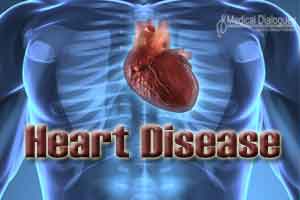- Home
- Editorial
- News
- Practice Guidelines
- Anesthesiology Guidelines
- Cancer Guidelines
- Cardiac Sciences Guidelines
- Critical Care Guidelines
- Dentistry Guidelines
- Dermatology Guidelines
- Diabetes and Endo Guidelines
- Diagnostics Guidelines
- ENT Guidelines
- Featured Practice Guidelines
- Gastroenterology Guidelines
- Geriatrics Guidelines
- Medicine Guidelines
- Nephrology Guidelines
- Neurosciences Guidelines
- Obs and Gynae Guidelines
- Ophthalmology Guidelines
- Orthopaedics Guidelines
- Paediatrics Guidelines
- Psychiatry Guidelines
- Pulmonology Guidelines
- Radiology Guidelines
- Surgery Guidelines
- Urology Guidelines
High-sugar diets raise heart disease risk in healthy people

Healthy people who consume high levels of sugar are at an increased risk of developing cardiovascular disease.
A ground-breaking study from the University of Surrey found that a subject group of otherwise healthy men had increased levels of fat in their blood and fat stored in their livers after they had consumed a high sugar diet.
The study, which has been published in Clinical Science, looked at two groups of men with either high or low levels of liver fat, and fed them a high or low sugar diet to find out if the amount of liver fat influences the impact of sugar on their cardiovascular health. The low sugar diet contained no more than 140 calories a day worth of sugar -- an amount close to the recommended intake -- while the high sugar diet contained 650 calories worth.
After 12 weeks on the high sugar diet, the men with a high level of liver fat -- a condition known as non-alcoholic fatty liver disease (NAFLD) -- showed changes in their fat metabolism that are associated with an increased risk of cardiovascular disease, heart attacks, and strokes.
Fat metabolism is the biochemical process by which fats are transported and broken down in the blood, and used by the cells of the body.
The results also revealed that when the group of healthy men with a low level of liver fat consumed a high amount of sugar, their liver fat increased and their fat metabolism became similar to that of the men with NAFLD.
Professor of Nutritional Metabolism, Bruce Griffin, said: "Our findings provide new evidence that consuming high amounts of sugar can alter your fat metabolism in ways that could increase your risk of cardiovascular disease.
"While most adults don't consume the high levels of sugar we used in this study, some children and teenagers may reach these levels of sugar intake by over-consuming fizzy drinks and sweets. This raises concern for the future health of the younger population, especially in view of the alarmingly high prevalence of NAFLD in children and teenagers, and exponential rise of fatal liver disease in adults."
For more details click on the link: A. Margot Umpleby, Fariba Shojaee-Moradie, Barbara Fielding, Xuefei Li, Andrea Marino, Najlaa Alsini, Cheryl Isherwood, Nicola Jackson, Aryati Ahmad, Michael Stolinski, Julie Anne Lovegrove, Sigurd Johnsen, Jeewaka Mendis, John Wright, Malgorzata E Wilinska, Roman Hovorka, Jimmy Bell, Louise E Thomas, Gary Frost, Bruce Arthur Griffin. Impact of liver fat on the differential partitioning of hepatic triacylglycerol into VLDL subclasses on high and low sugar diets. Clinical Science, 2017; CS20171208 DOI: 10.1042/CS20171208
Bruce Griffincardiovascular diseaseClinical Scienceheart attacksHeart diseaseNon-alcoholic fatty liver diseaseUniversity of Surrey
Next Story
NO DATA FOUND

Disclaimer: This site is primarily intended for healthcare professionals. Any content/information on this website does not replace the advice of medical and/or health professionals and should not be construed as medical/diagnostic advice/endorsement or prescription. Use of this site is subject to our terms of use, privacy policy, advertisement policy. © 2020 Minerva Medical Treatment Pvt Ltd